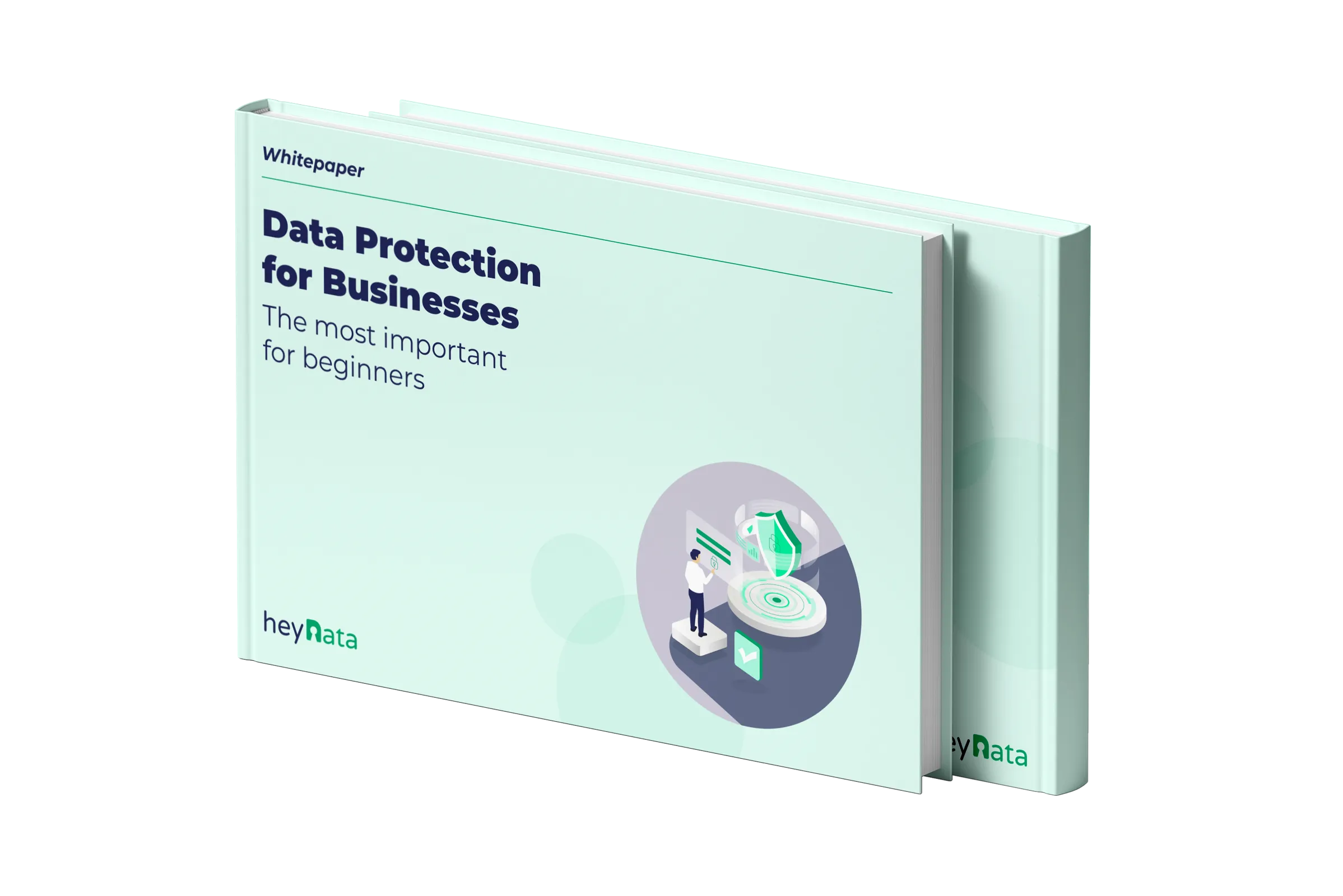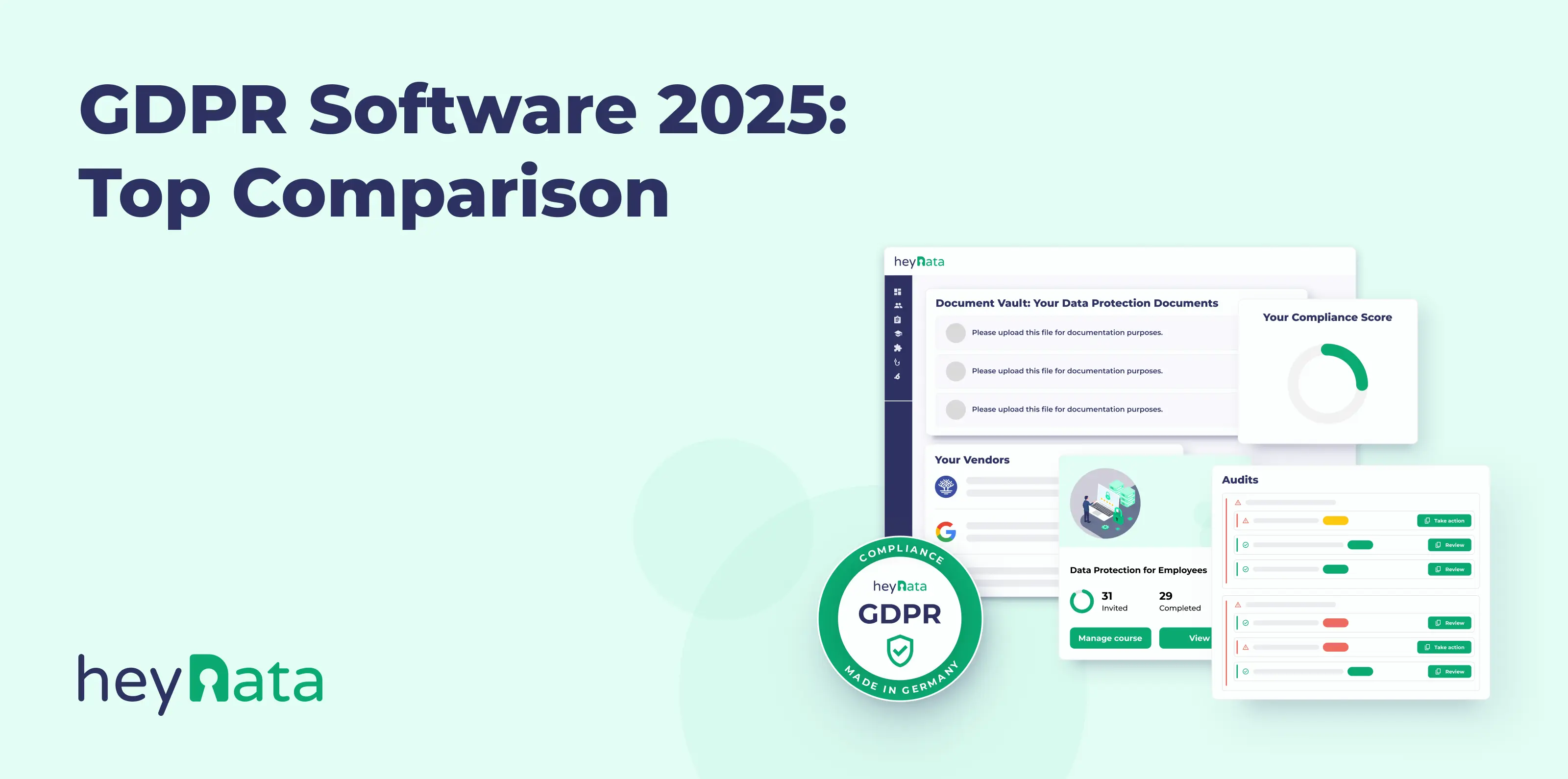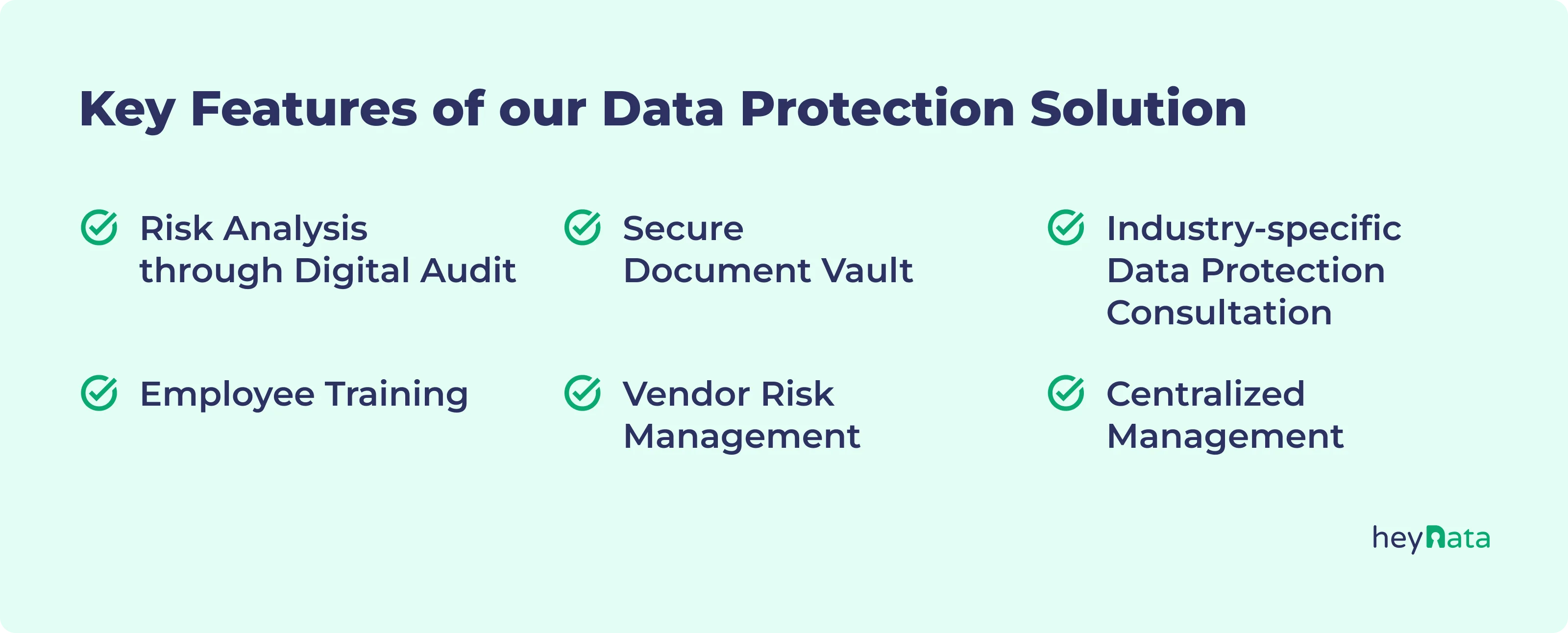
Unlock the Secrets to Effortless GDPR Compliance!

GDPR Software 2025: Top Comparison
Data protection has become a fundamental responsibility for businesses of all sizes. As regulations tighten and consumers grow more conscious of how their data is handled, ensuring GDPR compliance is no longer just a legal requirement—it’s essential for maintaining trust and avoiding costly penalties. Non-compliance can lead to severe financial consequences, reputational damage, and operational disruptions, making it critical for businesses to choose the right compliance solution.
However, achieving GDPR compliance is not always straightforward. Many companies struggle with understanding regulations, implementing the right policies, and maintaining compliance over time. Some attempt to manage compliance internally, while others turn to external consultants or specialized GDPR compliance software. But which approach is best for your business?
Table of Contents:
GDPR Compliance: Which Approach is Right for You?
Today, businesses have access to a range of compliance solutions, each with pros and cons. Evaluating them in light of your specific needs, organizational structure, and available resources is important to determine the most effective approach for achieving and maintaining GDPR compliance.

1. In-House Compliance Teams
Many businesses consider forming an in-house compliance team to manage GDPR internally. This approach allows full control over processes and ensures that compliance is deeply integrated into company culture. However, it also comes with significant challenges.
Pros:
- Full Control: Having an internal team allows for real-time decision-making and immediate response to data protection issues. Team members are typically more familiar with the company's culture, processes, and unique challenges.
- Tailored Solutions: An in-house team can develop and implement customized compliance strategies that align closely with the organization's specific needs and operational nuances.
- Continuous Monitoring: With dedicated resources focused solely on data protection, organizations can ensure ongoing compliance and quickly adapt to evolving regulations.
Cons:
- High Costs: Building a capable in-house compliance team requires significant investment in hiring qualified personnel and providing ongoing training. This can strain financial resources, especially for smaller organizations.
- Knowledge Gaps: The complexity of GDPR means that internal teams may struggle with certain technical aspects without external guidance. Continuous education is necessary as keeping up with evolving regulations can be challenging.
- Time-Intensive: Developing a compliance team from scratch requires significant time and effort, delaying compliance readiness.
- Legal Liability: When data protection obligations are not met, the entire organization can face serious legal risks and financial penalties. In the event of a data breach, it's not just the company that's affected — individuals such as the CEO or employees directly involved may also be held personally liable. Working with external compliance experts can help minimize these risks and offer an additional layer of protection. Relying on external experts can provide a layer of protection in this regard.
- Employee Turnover: Maintaining consistency in compliance efforts can be challenging due to potential staff turnover. Each new hire may need time to get up to speed with existing processes.
2. Traditional Law Firms & Consultants
Some businesses opt for traditional law firms or compliance consultants to handle GDPR. These experts provide tailored advice and legal expertise, helping companies navigate complex compliance challenges.
However, this method can also be costly and inefficient.
Pros:
- Expert Legal Knowledge: Consultants often have specialized knowledge in GDPR, providing insights that can be critical for compliance.
- Tailored Guidance: These professionals can offer customized advice suited to your business's unique data-handling practices.
Despite the clear benefits, relying solely on traditional law firms and consultants comes with notable limitations:
Cons:
- High Costs: Retaining legal consultants can become costly over time, particularly without a structured plan for ongoing engagement.
- Limited Ongoing Support: Traditional firms may not provide continuous support after initial consultations. As GDPR evolves, businesses may find themselves lacking necessary updates.
3. GDPR Compliance Software & SaaS Solutions
GDPR compliance software and SaaS (Software as a Service) solutions have emerged as powerful alternatives to traditional compliance approaches. GDPR compliance software provides an automated and scalable solution, making compliance management easier for businesses of all sizes. These tools help organizations track their data processing activities, manage compliance documentation, and provide ongoing risk assessments. Some organizations, such as heyData also provide complementary expert consultations and support.
Pros:
- Cost-effective: GDPR compliance software offers a more cost-effective approach compared to traditional legal consultants or in-house compliance teams. Instead of incurring high fees for a one-time consultation, businesses can opt for a subscription-based model that fits their budget.
- Efficiency and Scalability: Automating compliance processes through software streamlines data management, documentation, and risk assessments. This not only saves time but also allows for scalability as businesses grow and handle larger volumes of data.
- Reduces Human Error: Automated processes reduce human error while minimizing manual workload.
- Always Up to Date: These software solutions typically provide regular updates to ensure compliance with evolving GDPR regulations. This ongoing support ensures that businesses stay up-to-date with any changes and can adjust their practices accordingly.
- Easy to Integrate: By integrating with existing HR systems, compliance software solutions ensure that data protection measures are embedded within daily operations rather than treated as standalone tasks.
- Legal Liability: Some providers, such as heyData take on legal liability for your GDPR compliance, meaning if your business faces regulatory issues due to non-compliance, heyData assumes responsibility. This added protection gives you peace of mind, reducing legal risk while ensuring full compliance with data protection laws.
Cons:
- Varying Quality: As quality varies by provider, choosing the right software is essential.
- Lack of Personalized Guidance: While software can streamline processes, it may not provide the same level of personalized guidance and expertise as human consultants. However, some providers such as heyData offer an all-in-one solution combining the benefits of software, as well as personalized counsel.
Overall, while traditional law firms and consultants have their merits, GDPR compliance software eliminates much of the manual work associated with compliance, ensuring businesses stay up to date with regulatory changes without requiring dedicated in-house legal teams.
Essential Features for GDPR Compliance Success
When selecting a GDPR compliance solution, there are several key features to consider.
1. Digital Data Protection Audit
A comprehensive compliance solution should start by providing a GDPR readiness assessment to identify risks and gaps in data protection practices.
heyData's Data Protection Audit works in 4 simple steps:
- Completing the Questionnaire: Our platform offers audit sheets tailored for different departments, such as marketing or finance, that can be shared with your colleagues. With our Privacy Success team ready to support you, the average processing time is just two hours for all audit sheets.
- Data Review & Audit Call: Once the questionnaires are complete, we create your compliance documents and schedule an audit call to review the results and discuss the next steps.
- Compliance Documentation: Next, we provide a full set of compliance documents, including an audit report, privacy statements, processing records, and other key materials.
- Ongoing Support: Our Privacy Support team is ready to help with follow-up questions.
Our data protection audit results in a detailed report with expert-reviewed recommendations to improve compliance. It highlights existing measures, identifies vulnerabilities, and offers clear, actionable improvements—serving as a solid foundation for regulatory compliance.
2. Secure Document Vaults for Storing Personal Data Safely
Managing compliance documentation is a critical part of GDPR. A secure document vault ensures sensitive records are stored safely and remain accessible for audits and regulatory checks.
A secure document vault should encrypt compliance-related files for security, provide centralized access for key stakeholders, and automate document retention and deletion policies.
For example, with our document vault all of your documents, from audit reports to training certificates, are centralized and securely stored on ISO-certified, German servers, ready to be shared seamlessly with your team.

3. Industry-Specific Data Protection Officer (DPO) Services
A Data Protection Officer (DPO) oversees compliance and serves as the point of contact for regulators.
Having access to an industry-specific external DPO ensures your business can receive expert guidance tailored to your sector without the need for a full-time hire. Additionally, GDPR mandates businesses that have more than 20 employees or regularly process a large amount of sensitive personal data to appoint a DPO.
While there are many differences between appointing an internal DPO vs an external DPO, leveraging an external DPO may be up to 90% cheaper.
As such, appointing an external data protection officer provides compliance expertise while also enabling the company to save time and money that can be invested in the growth of the business.
4. Employee Training & Awareness Programs
One of the most overlooked aspects of GDPR compliance is employee awareness. Even the most sophisticated compliance strategy can fail if employees are not properly trained in data protection.
Employee training helps prevent accidental data breaches, educates staff on best practices for handling personal data and ensures company-wide compliance with GDPR.
Generally, the employer is responsible for training the employees to ensure that everyone who works with personal data is properly trained and complies with data protection rules.
Our online platform empowers flexible learning on an intuitive platform with transparent pricing.
5. Vendor Risk Management
Most businesses work with third-party vendors that process personal data. However, third-party vendors handling personal data can introduce significant compliance risks.
A Vendor Risk Management solution should include:
- Assessing third-party compliance with GDPR
- Automating contract and risk assessment workflows
- Monitoring ongoing compliance status
With heyData’s Vendor Risk Management (VRM) you can reliably check all services and providers used for compliance with the GDPR. We show you all the information you need at a glance to assess the security standards - for providers you already use as well as for selecting new providers and tools.
6. Centralized Compliance Management
Managing GDPR compliance across different teams, departments, and locations can quickly become complex. A centralized compliance management system streamlines the process by providing a single platform where businesses can monitor, track, and manage all compliance-related activities in real time.
Having a centralized solution provides several benefits:
- Unified dashboard: Access all compliance tasks, documents, and policies in one place.
- Task assignment and tracking: Ensure responsibilities are clearly defined and compliance tasks are completed on time.
- Real-time updates and alerts: Stay informed about upcoming audits, policy changes, or potential compliance risks.
Our centralized compliance management platform integrates all key GDPR tasks into a user-friendly dashboard. This means you can efficiently track compliance status, assign tasks to relevant team members, and generate reports to ensure they remain audit-ready at all times.
7. Software Integration
A modern GDPR compliance solution should seamlessly integrate with existing business software (e.g., HR systems, CRM platforms, and cloud storage solutions) to enhance workflow efficiency and automate compliance-related tasks.
Our platform supports integration with over 40 HR tools and industry-leading platforms such as Google Workspace, Azure Active Directory, Microsoft Dynamics 365, Okta, Personio, BambooHR, and Workday.
Aside from streamlining your HR processes, our integrations improve your GDPR compliance by making your HR data handling both scalable and secure.

Unlock the Secrets to Effortless GDPR Compliance!
The heyData Advantage: Why Businesses Choose It
Our All-in-One Compliance Solution comes with the key features outlined earlier, providing your business with a seamless, scalable, and expert-backed approach to GDPR compliance. It ensures compliance faster, simplifies documentation and integrates effortlessly with your existing workflows.
We offer transparent, structured pricing with options tailored to businesses of different sizes and compliance needs. Unlike traditional law firms or custom consulting services, our plans are predictable, cost-effective, and scale with your company’s growth.
Choosing the Best Fit for Your Business
Choosing the right GDPR compliance solution depends on your company’s specific needs, industry requirements, and internal resources. To ensure you make an informed decision, follow these key steps:
- Assess Your Compliance Needs: Identify gaps in your current compliance framework.
- Evaluate Features: Compare different GDPR compliance solutions based on legal expertise, your resources and scalability.
- Consider Long-Term Compliance: A GDPR solution should not only fix immediate issues but also help your business stay compliant in the long run.
To streamline your GDPR compliance journey, we provide a clear, guided process to help you achieve and maintain compliance with ease. Your journey with heyData typically starts with these steps:
✅ Get to Know Us - Book a free consultation to discuss and determine your compliance needs.
✅ Choose Your Fitting heyData Package – Select a plan that suits your business size and compliance complexity.
✅ Complete the Digital Audit – The digital audit guides you step by step through questions on the data protection-relevant points in your company.
✅ Rely on Our Know-How – Our team is happy to help you with technical problems and questions about data protection compliance.
Important: The content of this article is for informational purposes only and does not constitute legal advice. The information provided here is no substitute for personalized legal advice from a data protection officer or an attorney. We do not guarantee that the information provided is up to date, complete, or accurate. Any actions taken on the basis of the information contained in this article are at your own risk. We recommend that you always consult a data protection officer or an attorney with any legal questions or problems.


